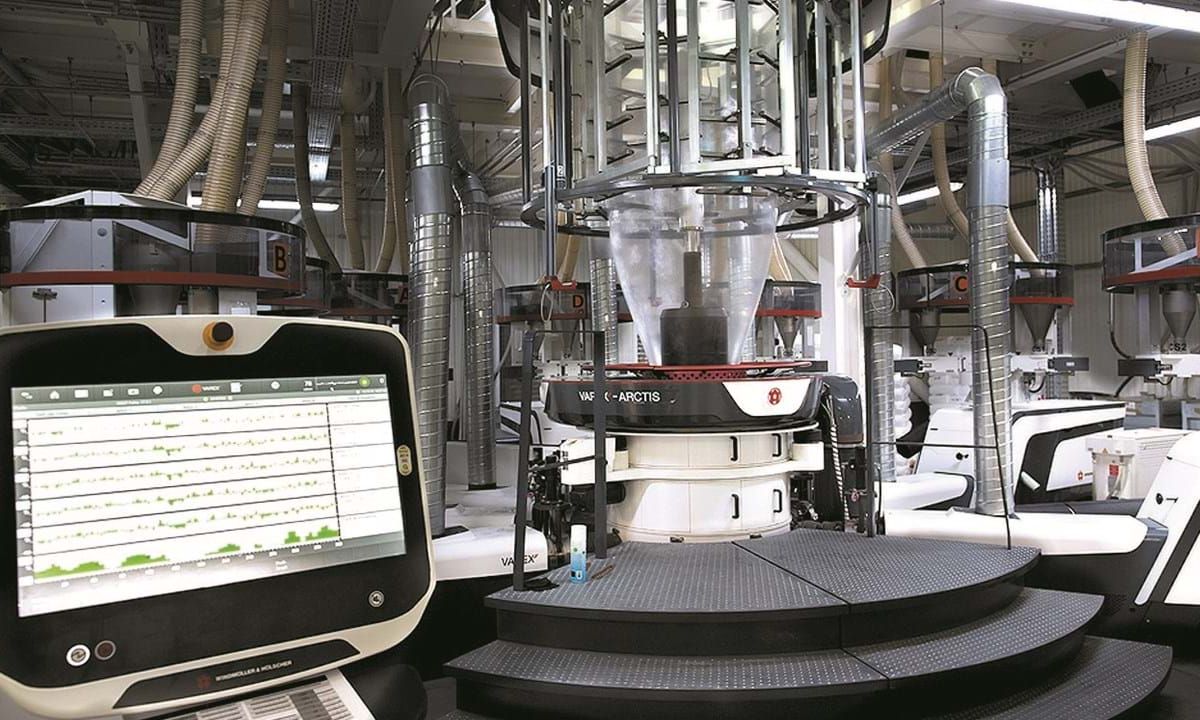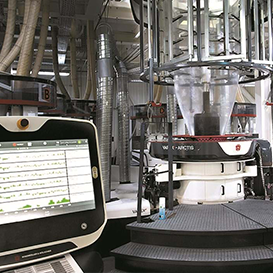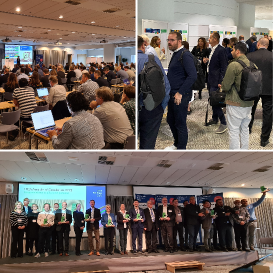Vizelpas pushes predictive maintenance to the next level in the PIANiSM project

Predictive and prescriptive maintenance techniques can be used to achieve an end-to-end automated manufacturing process across markets as diverse as automotive and mining – but not without a sophisticated system encompassing new analytics techniques & algorithms, data identification & integration and modelling processes. And in the ITEA project PIANiSM (Predictive and Prescriptive Automation in Smart Manufacturing), Portuguese plastic film manufacturer Vizelpas has been working to make this a reality.
The perfect testbed
With 210 employees and 15,000 m² of space, including state-of-the-art industrial equipment and a fully equipped laboratory that monitors and supports industrial activity and product development, Vizelpas is an eminent specialist in the world of flexible films for the food and medical industries. This made it an ideal requirement provider for PIANiSM, for which it also served as a testbed for the developed technologies by lending part of its shopfloor to the testing and implementation of new technology. In doing so, it supplied production and equipment data for the development of the predictive maintenance algorithms and enhanced monitoring tools, providing manufacturing expertise and feedback as required – all with a high degree of interaction and strong spirit of collaboration within the consortium.

An invitation to join
For Vizelpas, this particular collaboration emerged from a long history of work with Portuguese manufacturing software development expert Sistrade in previous research projects. This close relationship is also underlined by the fact that Sistrade has served as Vizelpas’ provider of production and maintenance systems for almost a decade. As PIANiSM’s focus on the ambitious development of predictive maintenance and enhanced equipment monitoring solutions turned out to be highly aligned with Vizelpas’ own needs and future roadmaps, accepting Sistrade’s invitation to join the project was an easy decision.
Searching for actionable insights
In highly demanding market segments like food and medicine, these needs are largely twofold: decreasing the equipment downtime and maintenance costs associated with production and improving the monitoring of equipment usage and operation with the aim to optimise production. In PIANiSM, the first step towards this was ensuring that Vizelpas could obtain the relevant data from their equipment. In spite of positive discussions with consortium partners and the involvement of Vizelpas’ own production equipment providers to assess the possibilities, raw data from equipment proved insufficient. This needed to be further transformed into actionable insights in order to improve operations and maintenance decisionmaking.
Results at all levels
Such a result was achieved within the project via collaboration with Sistrade and Portuguese research institute ISEP, leading to a set of algorithms and tools that could provide predictive insights and reports on equipment usage and maintenance to improve Vizelpas’ equipment awareness capabilities. A strong impact has since been felt at an operational level as the company has successfully improved both the mean time before failure (MTBF) and the time taken to repair equipment. Increasing the uptime of equipment means a greater ability to meet the demands of customers, with a knock-on reduction in maintenance costs and a smaller parts inventory. From a human perspective, this also allowed Vizelpas to divert human resources away from manual equipment control and maintenance to higher value tasks.
For Vizelpas and countless others in this field, the precise control of equipment conditions and the reduction of unforeseen downtimes mean less waste generation and decreased energy consumption.
Increasing social capital
Of course, added value isn’t just measured in tangible improvements to manufacturing and cost savings. By participating in a project with ITEA, Vizelpas also highlights the opportunity to go beyond a one-to-one relationship with a partner and to take in contributions from the top level of R&D both nationally and internationally. Their involvement in PIANiSM allowed Vizelpas to apply and test solutions that were tailored to their own shopfloor while learning from partners with similar problems and contexts, thereby increasing their knowledge generation and integration in a manner which would be very difficult to accomplish alone. What’s more, this proved possible in a notoriously difficult domain: while predictive maintenance is widely discussed by production companies, its implementation has seldom been satisfactory in the past.
Disrupting traditional maintenance
Beyond the immediate results of the project, Vizelpas also has high hopes for PIANiSM’s impact on the wider world of manufacturing, where the introduction of predictive maintenance and equipment awareness approaches are key to improving sustainability – something that holds especially true for the plastic film industry in which high temperatures are a fact of life. But for Vizelpas and countless others in this field, the precise control of equipment conditions and the reduction of unforeseen downtimes mean less waste generation and decreased energy consumption. The subsequent decrease in carbon emissions is just one of many ways in which PIANiSM is disrupting the downsides to traditional maintenance and laying the foundation for a more positive future.
More information:https://itea4.org/project/pianism.html
https://vizelpas.pt/

Other chapters
Use the arrows to view more chapters

Editorial
By Jean-François Lavignon

Country Focus: Spain
Competitiveness through collaboration

ACCURO
Coming back for more – the pull of ITEA

ITEA Success story: REVaMP²
REVaMP² enables profitable engineering of mass-customised products and services

Community talk with Jos van Sas
The delights of being on the circle’s edge

By and for end-users
Vizelpas pushes predictive maintenance to the next level in the PIANiSM project

ITEA Success story: SPEAR
A new approach to energy optimisation for industry

Glancing back at the ITEA PO Days 2022 & Family reunion
Three days of familiar onsite inspiration and innovation

SME in the spotlight: KE-Works
Where digitalisation and collaboration meet

